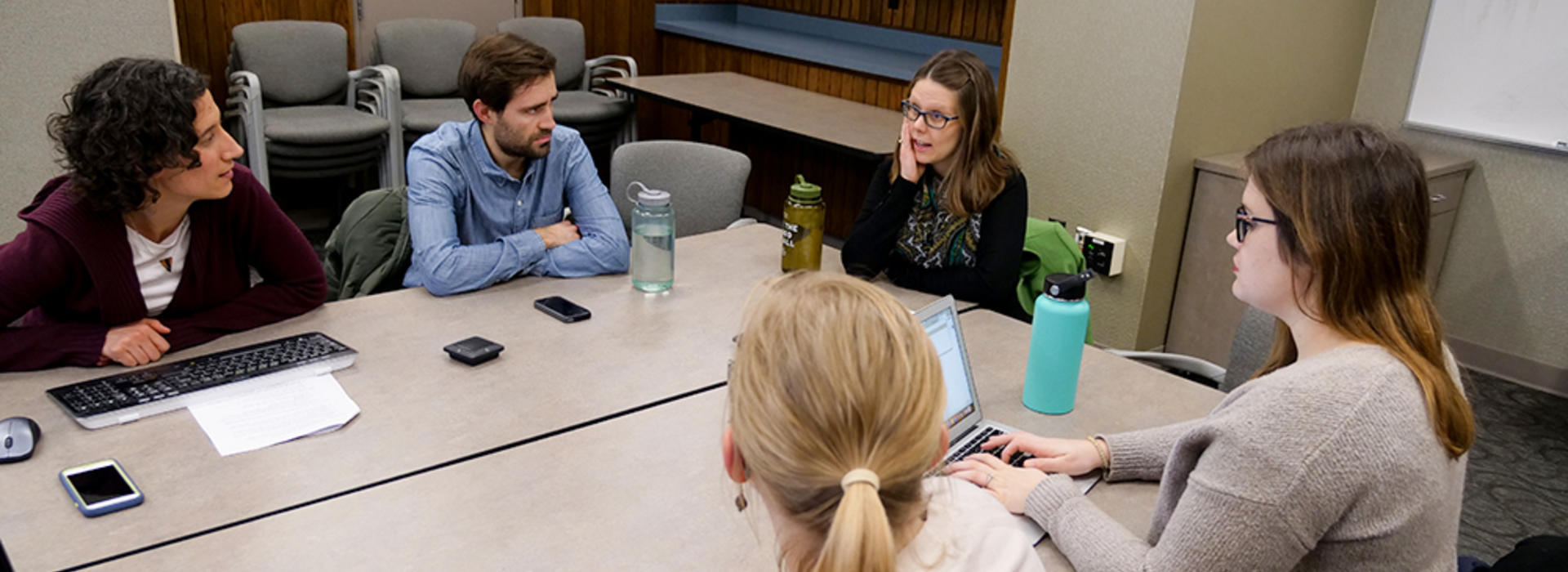
Residents Participate in New Longitudinal Advocacy Cohort Program
Within the last year, the Department of Family Medicine and Community Health at the University of Minnesota Medical School re-emphasized a new focus—advocacy. A department-wide work group, led by Renée Crichlow, MD, who is an assistant professor in the department, began brainstorming ways to strengthen advocacy activities among its faculty, students and trainees. One of their ideas, now the Longitudinal Resident Advocacy Cohort Program, is half-way through its first year in educating residents on the best practices in advocacy work.
“These residents are learning skills together and applying them to important issues happening right now, giving them the opportunity to practice their skills in real time,” said Katie Freeman, MD, an assistant professor in the department.
Dr. Freeman co-leads the program with Anne Doering, MD, a third-year resident, who Dr. Crichlow asked to lead the development of the curriculum. Dr. Doering brought in fellow residents to do that, which ultimately informed the decision to make the program longitudinal.
“Residents often wonder how to go about developing long-term relationships with mentors, legislators and community groups. There are many ways to get involved, but it can be a slow process,” Dr. Doering said. “Advocacy is really about being there and present; listening to patients and to the community and communicating that to legislators.”
The current pilot program will last nine months and will be evaluated at the end of May 2020. The cohort gathers together one evening a month and has guest speakers on advocacy topics, such as connecting with legislators, writing an op-ed and working with community boards. Residents learn directly from advocacy experts, both physician and non-physician, and are given monthly assignments to complete in their home community and program. Each session also includes time for reflection on the previous month’s action component. Right now, six residents participate, including Stephanie Aldrin, MD, a second-year resident.
“When I looked through the curriculum of this program, I realized there was a great opportunity to expand my abilities to care for patients as a family physician,” Dr. Aldrin said. “For me, being a doctor and caring for a patient goes beyond the walls of a clinic or hospital, and this means I have to work toward health equity with others in the community.”
Dr. Freeman says this first cohort volunteered for the program, receiving the dedicated time to participate through the support of their program directors. Eventually, she hopes the program will become a longitudinal resident rotation that benefits both residents and fellows, as well as their patients.
“In family medicine, we love engaging with our patients to improve their health, but this is a way to help on a larger scale with greater impact for populations and communities, which is empowering and impactful,” Dr. Freeman said. “I think, too, in many ways when looking at physician engagement and burnout, it often feels like you lack control over the larger healthcare situations that impact you and your patients. Having skills in advocacy helps us feel that we can play a role in making positive changes instead of just feeling like things are happening to you. When you think about burnout and frustration, in the longevity in a career like this, having those tools is huge.”